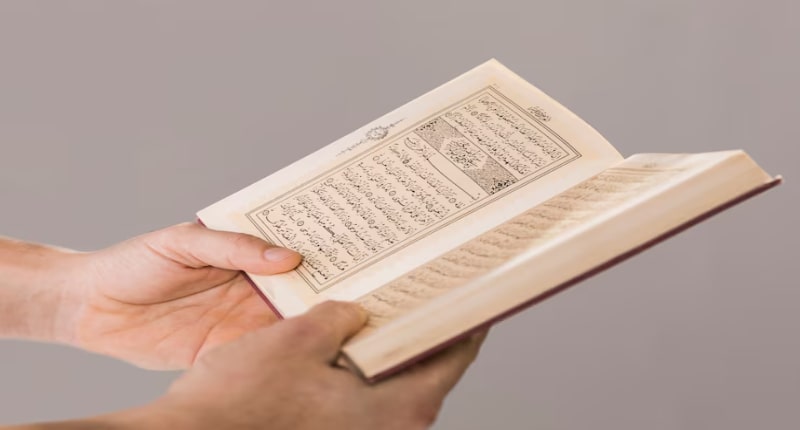
Ruqyah, the Qur’anic method of spiritual healing, is a powerful tool given to us by Allah to protect ourselves from unseen harm, heal from spiritual ailments, and draw closer to our Creator. While many seek experts or scholars for Ruqyah services, the truth is that every Muslim has the right—and the ability—to perform Ruqyah on themselves and their loved ones. This article focuses on basic yet powerful Ruqyah techniques that every believer should learn, master, and regularly practice.
Understanding Ruqyah: More than Just Recitation
Ruqyah isn’t simply about repeating verses—it’s a deeply spiritual process that includes:
- Faith in Allah’s words as a cure
- Sincerity and humility in approach
- Consistency and patience over time
- Avoiding all forms of shirk (associating partners with Allah)
When these internal elements combine with specific Qur’anic recitations, Ruqyah becomes a shield against sihr (magic), evil eye, envy, jinn possession, and even psychological disturbances.
Preparation: Spiritual Cleanliness and Intention
Before performing Ruqyah, it’s essential to prepare both physically and spiritually. Here’s a basic checklist:
- Cleanliness: Perform wudu (ablution). If possible, be in a clean space with minimal distractions.
- Avoid Sin: Stay away from music, haram images, or sinful speech before and after performing Ruqyah.
- Sincere Niyyah (Intention): Set your heart on healing for the sake of Allah. Don’t treat Ruqyah as magic or a superstition.
- Tawakkul (Trust in Allah): Know that He alone heals. The Qur’an is only a means by which that healing occurs.
Basic Ruqyah Routine for Protection & Healing
The following is a foundational daily Ruqyah routine. It is suitable for those seeking protection or mild healing (such as from negative thoughts, stress, insomnia, evil eye, etc.).
Step 1: Opening with Praise and Tawheed
Begin by saying:
- Bismillah (In the Name of Allah)
- Astaghfirullah (Ask for forgiveness)
- Allahu Akbar (Declare His greatness)
- La ilaha illa Allah (There is no god but Allah)
Then recite:
Surah Al-Fatihah (x3)
The opening chapter of the Qur’an is a complete spiritual remedy. The Prophet (peace be upon him) said it is a healing.
Step 2: Key Verses for Protection
Recite each of the following with deep focus, ideally three times each:
- Ayat al-Kursi (Surah Baqarah 2:255)
A powerful verse known to repel jinn and protect the reciter. - Surah Al-Baqarah 2:285-286
These two closing verses of Surah Baqarah are deeply protective. - Surah Al-Ikhlas (112), Al-Falaq (113), An-Nas (114) – x3 each
Known as Al-Mu’awwidhat, these chapters offer protection from all forms of evil—jealousy, black magic, and whispers of shaytan.
Blowing and Wiping Technique
After reciting, blow gently into your palms and wipe your hands over your body—starting from the head, face, chest, and then down the rest of your body.
This technique is sunnah, practiced by the Prophet (peace be upon him), especially before sleeping.
Ruqyah with Water and Olive Oil
For deeper healing or persistent issues like black magic, jinn, or chronic spiritual afflictions, using Ruqyah-infused items can amplify the impact.
Ruqyah Water Technique:
- Take a clean bottle of water (ideally Zamzam if available).
- Recite the same verses listed above, directly into the water, blowing after each verse.
- Drink the water morning and evening. You may also pour some into a spray bottle and mist your home, bedroom, or affected areas.
Ruqyah Olive Oil:
- Use pure, cold-pressed olive oil.
- Recite Ruqyah verses into the oil just as you would with water.
- Apply to body parts where you feel pain, discomfort, or tension (especially spine, shoulders, chest, or forehead).
- You can also apply it before sleep or after a shower.
Techniques for Insomnia, Nightmares, or Paralysis (Sleep-related Jinn Attacks)
If someone is experiencing frequent nightmares or feeling “held down” in their sleep, these techniques are beneficial:
- Surah Al-Baqarah: Play audio in the home—especially at night. The Prophet (peace be upon him) said shaytan does not enter a house in which Surah Al-Baqarah is recited.
- Sleep on Wudu: Maintain ablution before sleeping.
- Place hand on chest: If feeling fear or pressure, place your right hand on your chest and say:
“A’udhu bi izzatillahi wa qudratihi min sharri ma ajid wa uhadhir”
(I seek refuge in the might of Allah and His power from the evil of what I find and fear.) - Repeat “Hasbiyallahu la ilaha illa Huwa”: This dhikr affirms total reliance on Allah and repels spiritual harm.
Common Mistakes in Performing Ruqyah
- Using Ruqyah with no faith: It’s not magic—it works only through belief and trust in Allah.
- Expecting instant results: Healing may take days, weeks, or even months depending on severity and sincerity.
- Turning Ruqyah into a business: While qualified Raqis may be compensated, making Ruqyah a profit-driven practice often corrupts its purity.
- Mixing Ruqyah with haram elements: Some deviant practices include mixing Qur’an with astrology, talismans, or calling on jinn—these are acts of shirk.
Final Advice: Be Consistent and Patient
Just like physical ailments take time to heal, so do spiritual wounds. Ruqyah works best when combined with:
- Regular prayer and dhikr
- Avoiding sin and repenting daily
- Surrounding yourself with righteous company
- Fasting or charity for added barakah
If your symptoms are severe (convulsions, voices, strong aversion to Qur’an), then you may need to seek a trustworthy, qualified Ruqyah practitioner who strictly adheres to Qur’an and Sunnah.
But for most believers, Ruqyah is a beautiful gift—free, accessible, and deeply empowering.
